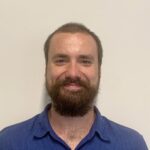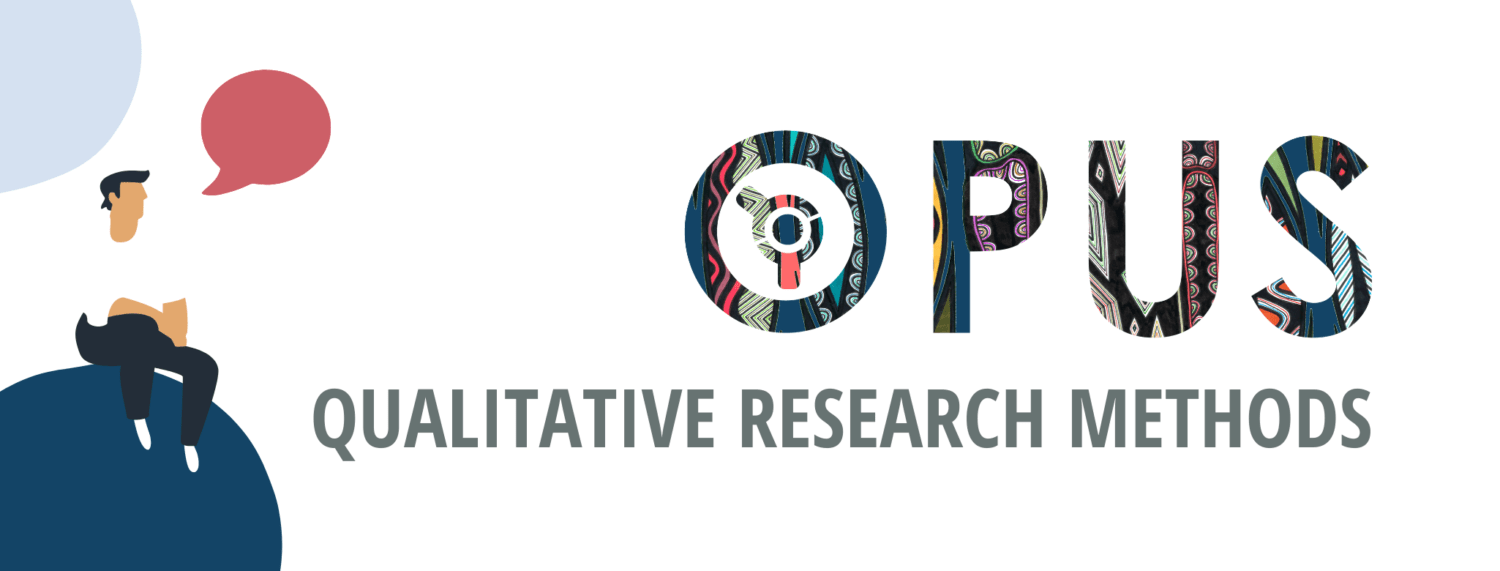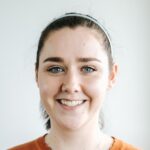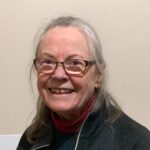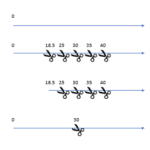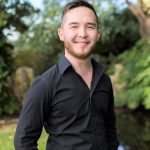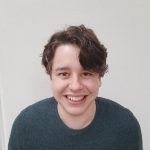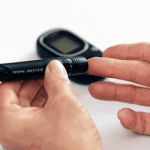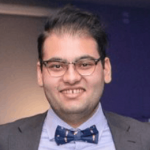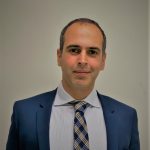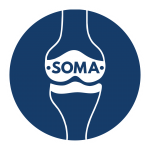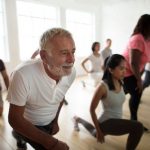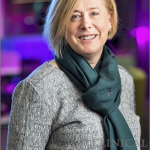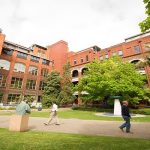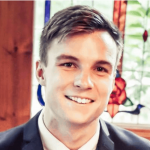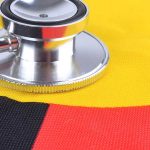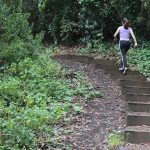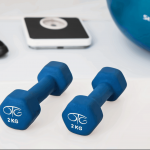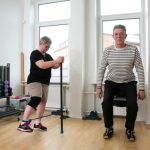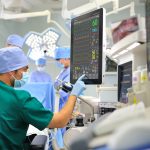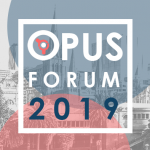Ryan is a research assistant, Bachelor of arts student and passionate member of the Enhancing Equity, Collaboration and Culturally Secure Osteoarthritis Care for Aboriginal Australians (ECCO) program here at OPUS.
Ryan has a keen interest in Aboriginal and Torres Strait Islander health and has already played a pivotal role in liaising and building relationships with First Nation communities. We look forward to seeing Ryan continue to grow in his new role.
The consumer and community involvement program (CCIP) has started the year, picking up where it left off. We’ve reached our goal number of consumers for our pilot program, with more consumers still being actively recruited.
Our program is now shifting to recruiting researchers and training up our consumers. Our members have also recently presented at the Spotlight on Engagement series webinar, doing the CCIP and the whole of OPUS proud.
Join Dr Samantha Bunzli and Penny O’Brien as they take you through a tailor made course focusing upon the theory, application and practical skills surrounding qualitative research. This course is suitable for anyone working in or interested in learning more about qualitative research. This includes clinicians, non-clinicians, researchers and students.
Spots are limited, so be sure to get in quick!
Elise is a research assistant, criminology graduate and future OPUS PhD candidate. She has worked on a number of OPUS projects in Stream 2 and with the newly established international periprosthetic joint infection (PJI) consortium.
Elise’s PhD project will draw on data from this consortium and registry, and is set to begin in 2021.
Consumer involvement has always been a highly desirable complementary program to research groups. A small working group within OPUS was established to create this program a working reality and by March 2020, OPUS had assigned a Consumer and Community Liaison Officer to drive our concepts to implementation.
We sat down to chat to Marion, our first consumer advocate here at OPUS. She has played a pivotal role in shaping the CCIP and building it from the ground-up, but what is her background, her experience with OA and how did she come by the program in the first place?
The first in a new series, here is the story of Marion Glanville-Hearst:
Brooke Conley is a physiotherapy student, a proud Ngiyampaa woman,
and a future OPUS PhD candidate.
Her research is set to begin in 2021 and she will be working with the ECCO team to investigate culturally secure arthritis practice.
Editorial by Penny O’Brien, OPUS Qualitative Trials Coordinator and PhD Student.
Osteoarthritis is one of the most common causes of pain and disability and has an enormous impact on public health systems. However, we have neglected to consider how osteoarthritis impacts Indigenous people and their communities.
Cultural security is a commitment to providing services and spaces that do not compromise the cultural rights, values, beliefs, knowledge systems and expectations of Aboriginal and Torres Strait Islander people and is integral to the way we do business in health care and research.
A qualitative investigation and article by Nardia Klem, Clinical Physiotherapist and Curtin University PhD Candidate
Patient satisfaction is frequently discussed in the clinical research sphere, yet its definition is broad and varied.
Difficulties in determining the impact of a risk factor that is handled in almost as many ways as the number of studies that report it.
Osteoarthritis is a debilitating condition as well as a growing global health problem and total knee arthroplasty (TKA) is an effective treatment for advanced disease.
The OPUS team was delighted to learn that our own A/Prof Maria Inacio and Dr Darshini Ayton were both awarded a NHMRC Investigator Grant Fellowship.
Both researchers will be using the grant to improve the health and well-being of ageing Australians.
Naz is a registered nurse, an Aboriginal Research Assistant at OPUS and is identified in her tribe as a Yamatji/Wongi lady.
Naz engages and liaises with Aboriginal communities as a healthcare worker to build trust and develop a rapport and understanding of long-term health.
Jay is a Musculoskeletal Physiotherapist currently undertaking a PhD in Physiotherapy at Curtin University and the OPUS CRE.
He currently consults on a part time basis, working with people with complex and chronic musculoskeletal pain conditions.
Cade is a University of Melbourne M-Phil candidate at the OPUS CRE. He has previously completed a Bachelor and Master of Arts, and is now pursuing pharmaco-epidemiological academic interests with the support of a highly competitive Research Training Program Scholarship from the Commonwealth Government.
Michelle Tew, a PhD candidate and Health Economics Research Fellow at OPUS, recently published a research article in the Journal of Clinical Medicine on the co-morbidities and sex differences of patients’ long-term quality-of-life outcomes after total knee replacement.
This study focused on the differences in outcomes between those with and without diabetes.
The Statistical Society of Australia awards the CSIRO/SSA Betty Allan Travel Award to female early career statisticians to support their careers through enabling travel opportunities for professional development.
Our very own Sharmala Thuraisingam was the deserving 2020 recipient of this award.
Siddharth (Sid) Rele is a University of Melbourne medical student completing his research project with the OPUS Centre for Research Excellence.
Since joining OPUS, Sid has investigated the impact of patients’ length of stay in hospital for knee and hip replacement surgery.
After graduating from Monash University medical school, Dr Babazadeh completed a PhD in orthopaedic surgery at the St Vincent’s Hospital in Melbourne, where he focused on improving outcomes in knee replacement surgery.
Since then, he has trained as an orthopaedic surgeon, specialising in knees, hips and wrists.
Student Orthopaedic and Musculoskeletal Association (SOMA) brings together students from different locations and institutions who are interested in musculoskeletal and orthopaedic health.
We foster an inclusive and active culture of engagement with research, peer-to-peer support, teaching, and advocacy.
A recently published editorial in the British Journal of Sports Medicine, which was written by lead author JP Caneiro and an international team of leaders in the field of osteoarthritis, calls for three actions to improve the way that we think and talk about knee osteoarthritis.
Read more…
MD-PhD candidate Daniel Gould explains what machine learning is and how it can identify patients at risk of readmission after total knee replacement.
Machine learning may sound futuristic, but it has become an increasingly common method in medical research over the past decade.
A team of researchers from around the world, including our own Samantha Bunzli, recently released a report outlining a set of global health priorities with the aim of improving the prevention and management of non-communicable diseases.
Each year, tens of thousands of patients who are prescribed opioids after surgery remain reliant on these medications even after their acute surgical pain has subsided.
This worrying trend is one of the most widely recognized ways in which surgeons have contributed to opioid crises in many regions around the world.
The OPUS team was delighted to learn that our own A/Prof Michelle Dowsey was awarded a Dame Kate Campbell Fellowship.
Named in honor of Dame Kate Campbell (1899-1986), these prestigious fellowships recognize and reward outstanding research performance and commitment to the values of the University of Melbourne’s Faculty of Medicine, Dentistry and Health Sciences.
Read more…
The ECCO research stream, which aims to better understand and meet the needs of Aboriginal and/or Torres Strait Islander Australians with osteoarthritis (OA), has had another early win.
Researchers from this stream, including Tilini Gunatillake (PI), Peter Choong, Gail Garvey, Sam Bunzli, Michelle Dowsey, Toni Mason, and Penny O’Brien, were recently awarded a competitive grant by the Research Endowment Fund.
Read more…
The Hospital Research Foundation (THRF) recently announced $5.7 million worth of research grants, and A/Prof Maria Inacio was one of the lucky few to be awarded a fellowship.
Maria and her team’s work leverages the Registry of Older South Australians (ROSA), Australia’s first large scale resource to monitor the health and wellbeing of older individuals in the aged care sector.
Daniel Gould began his journey with OPUS in July 2018 while working on his MDRP, a research project that is a part of the University of Melbourne’s medical degree.
Since then, he has worked on the SMART database as a research assistant, and in June of this year he became the University of Melbourne’s first combined MD-PhD student.
Recently published findings from a randomised controlled trial, led by A/Prof Michelle Dowsey, suggest that offering mindfulness training to certain patients before their joint replacement can improve their pain and function after surgery.
Pre-surgery psychological distress can lead to poorer outcomes following total joint replacement (TJR) surgery.
Tilini Gunatillake commenced her journey as a Research Fellow with our new ECCO team in June this year.
She obtained her PhD from the University of Melbourne in 2016 under the Department of Obstetrics and Gynaecology. Her PhD project investigated potential causes of pregnancy complications with the aim of identifying viable treatment options for these diseases.
The St Vincent’s Hospital Melbourne Aboriginal Health Unit has developed a 1 hour Cultural Awareness Training session that will be delivered to all hospital staff and OPUS members.
This session will cover aspects of Aboriginal and Torres Strait Islander culture and provide practical advice and skills that can be applied when working with Aboriginal and Torres Strait Islander people.
Penny O’Brien began working with OPUS in February 2018 as a research assistant, managing qualitative projects in Stream 2.
Since then, she has confirmed her love for the OPUS team and the supportive work environment that they provide by transitioning to a PhD in the newly established Aboriginal Health stream.
In a recently published article in Clinical Orthopaedics and Related Research, Dr Samantha Bunzli explores some misconceptions that patients have about their knee osteoarthritis.
Sam’s paper highlighted a number of common beliefs that appear to influence patients’ willingness to pursue treatments such as exercise and weight loss.
In a systematic review published in Disability and Rehabilitation, PhD candidate Lyndon Hawke examined what we know about the effectiveness of behavioural interventions that aim to increase levels of physical activity after hip or knee joint replacement.
Replacing an osteoarthritic hip or knee is often thought to remove a significant barrier to engaging in many forms of exercise.
For many people with osteoarthritis, the constant pain that they experience as they conduct their daily routine can be debilitating. Simple movement creates excruciating burning pain that diminishes ones quality of life, leading to desperate attempts to find a fix that will eliminate the sensations.
While medication is an option, none are as effective as a total joint replacement (TJR).
A new study published in Clinical Rheumatology by PhD candidate Lyndon Hawke examined whether exercise delivered in a group setting in the early stage of outpatient rehabilitation influenced self-reported physical activity levels after hip or knee joint replacement.
Those with osteoarthritis often fail to meet recommended physical activity levels following a knee or hip replacement.
OPUS PhD student, Michelle Tew has been busy the past few months spruiking her research findings everywhere from Melbourne to Oxford.
Most notably, Michelle participated in a conference that specifically focused on diabetes simulation modelling which ties in with Stream 5 of the OPUS research pillars. Read on for her wrap up on her findings:
Read more…
In an aging society, there will be an increased demand for total knee arthroplasty (TKA) in those over 80 years. This latest study, published in the November 2018 issue of The Bone & Joint Journal, investigates the effect of age on patient outcomes after TKA by comparing patients below and over 80 years old.
Undergraduate students will often participate in a short research project for half a year as part of their course curriculum.
Read more…
The last major round for NHMRC funding under the old schemes is coming to an end and the release of grant outcomes was bittersweet for many researchers.
Now that the embargo has been lifted, OPUS scored three wins – 2 from our Early Career Researchers and 1 from our Captain – in such a competitive environment and we congratulate them for their effort.
The June issue of Clinical Orthopaedics and Related Research featured members of OPUS and highlighted the importance of weight and mortality after total joint surgery.
Lead author, A/Prof Michelle Dowsey, explained that contrary to popular belief, obese patients were less likely to have life-threatening complications or death following TJR compared to underweight patients. Rather, it is underweight patients that may require further risk assessment post-surgery.
Professor Peter Choong, the Sir Hugh Devine Chair of Surgery and Head of Department of Surgery at St Vincent’s Hospital, Melbourne, has been awarded a highly competitive Practitioner Fellowship by the Australian Government’s National Health and Medical Research Council.
Only 14 Practitioner Fellowships were awarded in 2018 which are designed to bridge the gap between knowledge gained from research into the implementation of improved clinical practice and health policies.
NHMRC will be releasing new funding guidelines to help transition from the old schemes to the new. On top of the new grants schemes, the current grant management system, RGMS, will be phased out completely by 2019 and replaced with Sapphire, which will be live in November 2018.
There are no confirmations that the 2019 major rounds will be completed in Sapphire since we are nearing the end of the year.
Our latest PhD student, biostatistician Sharmala Thuraisingam, has been busy since commencing her studies 6 months ago.
As technology advances further in the medical research world, analysing big data using statistical methods has taken an increasingly important and bigger role.
A new study led by researchers from Queensland University of Technology have concluded what most of us suspected all along: grant writing is a ‘soul-destroying’ exercise…
OPUS members Profs Phillip Clarke and Nicholas Graves were involved in the construction of the first study to examine the effects of grant writing in the Australian medical research landscape.
OPUS invites you to the inaugural 2019 OPUS Forum on 29th and 30th March 2019 at the Melbourne Brain Centre situated in Melbourne, Australia.
Join us as we learn more about patient experiences, alternative therapies, cost efficiency, new technology and methods to inform a new model of OA care to better serve patients.

